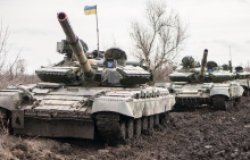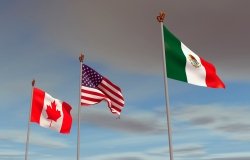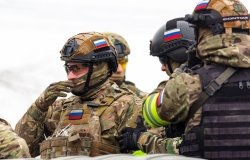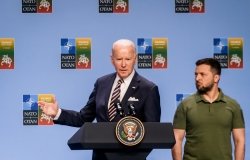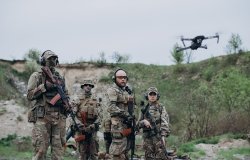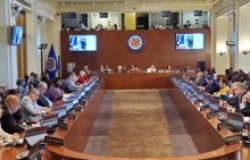Iran: It’s a Deal, Almost
"The deal still has to go through formal drafting, but the terms announced by Secretary of State John Kerry addressed the majority of issues with more specificity than expected," writes Robin Wright.
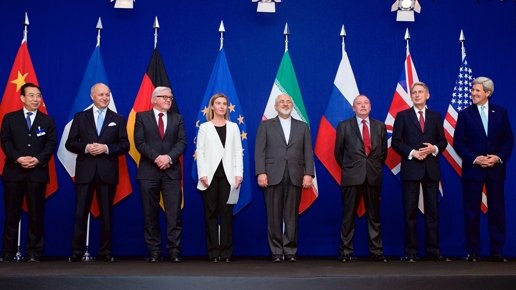
The Iranians broke the news first. “Solutions on key parameters of Iran #nuclear case reached. Drafting to start immediately, to finish by June 30th,” President Hassan Rouhani tweeted, from Tehran. An hour later, Iran and the world’s six major powers announced that eighteen months of intense diplomacy—and a week of all-nighters in Lausanne, Switzerland—had finally produced a blueprint to prevent the Islamic Republic from making a bomb, at least for a decade.
“We have an historic opportunity to prevent the spread of nuclear weapons in Iran, and to do so peacefully,” President Obama said shortly afterward, from the Rose Garden. “This framework would cut off every pathway that Iran could take to develop a nuclear weapon. Iran will face strict limitations on its program.” Tehran had also agreed to “the most robust and intrusive inspections and transparency regime ever negotiated for any nuclear program in history,” the President added. “So this deal is not based on trust; it’s based on unprecedented verification.” Iranian state television broadcast Obama’s remarks live.
The deal still has to go through formal drafting, but the terms announced by Secretary of State John Kerry addressed the majority of issues with more specificity than expected. Iran’s capabilities will be seriously curtailed—some for ten years, some for fifteen years, and some indefinitely—in exchange for a phased easing of sanctions imposed separately by the United Nations, the United States, and the European Union.
Among the key provisions, Tehran agreed to reduce its centrifuges by two-thirds, to just over six thousand. It will limit future enrichment and reduce the current stockpile by ninety-eight per cent. As a result, the so-called breakout time—the time required to acquire fissile material sufficient for one bomb—will be extended to a year; it is currently only two or three months. A former covert facility built deep in the mountains at Fordo will not be allowed to enrich uranium for at least fifteen years, and will be converted into a research center for peaceful use. The heavy-water reactor at Arak will be redesigned so that it can no longer produce weapons-grade plutonium.
“This is well beyond what many of us thought possible even eighteen months ago, and a good basis for what I believe could be a very good deal,” Britain’s Foreign Secretary, Philip Hammond, said. “But there is still more work to do.”
Despite decades of tensions, beginning with the 1979 seizure of hostages at the U.S. Embassy in Tehran, the majority of Americans now appear ready for a deal. By a margin of almost two to one, Americans support a pact that blocks Iran’s path to a nuclear weapon in exchange for relief from economic sanctions, according to a Washington Post-ABC News poll this week.
The deal has already changed the chemistry between Tehran and Washington. Britain, China, France, Germany, and Russia were partners in the talks with Iran, but in recent months Kerry emerged as the lead player in the intimate diplomacy with Iran’s Foreign Minister, Javad Zarif.
The blueprint, if formally approved in June, could have longer-term implications. “Symbolically, it is enormously important, because it means that, after thirty-six years, we can move to something other than just spitting at each other,” John Limbert, a former hostage and political officer, told me. “When the ‘bomb, bomb Iran’ crowd says we can’t trust Iran, I say, ‘So what?’ Throughout history, we’ve made deals with people we don’t trust. I support whatever gets us out of this morass.”
The old hostage-takers in Iran appear to want a deal, too. As diplomats in Lausanne conferred over the final sticking points, Iran’s Vice President, Massoumeh Ebtekar, tweeted, “Nightfall over Tehran after a day of very clean air, people pray for the success of negotiation, the triumph of peace.” Ebtekar, who grew up in Philadelphia, was briefly famous during the Embassy seizure as the English-language spokesperson for the student hostage-takers. (The hostages and American TV viewers knew her as Sister Mary.) She is now the highest-ranking female politician in the Islamic Republic.
Republicans in Washington remain unconvinced. House Speaker John Boehner, who created a controversy by inviting Israeli Prime Minister Benjamin Netanyahu to speak about Iran to a joint session last month, demanded that Congress review the details before sanctions are lifted. “After visiting with our partners on the ground in the Middle East this week, my concerns about Iran’s efforts to foment unrest, brutal violence and terror have only grown,” he said in a statement. “It would be naïve to suggest the Iranian regime will not continue to use its nuclear program, and any economic relief, to further destabilize the region.” Boehner’s message could resonate. Although the majority of Americans may want a pact with Iran, according to a new Pew poll, they also want Congress to have final authority over the deal.
In his remarks today, the President warned, “If Congress kills this deal—not based on expert analysis, and without offering any reasonable alternative—then it’s the United States that will be blamed for the failure of diplomacy. International unity will collapse, and the path to conflict will widen.” He asked his critics, “Do you really think that this verifiable deal, if fully implemented, backed by the world’s major powers, is a worse option than the risk of another war in the Middle East?”
The opinions expressed here are solely those of the author.
About the Author

Robin Wright
Author and columnist for The New Yorker

Middle East Program
The Wilson Center’s Middle East Program serves as a crucial resource for the policymaking community and beyond, providing analyses and research that helps inform US foreign policymaking, stimulates public debate, and expands knowledge about issues in the wider Middle East and North Africa (MENA) region. Read more
